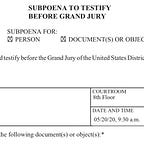The Jacksonville two-step
A 62-foot granite monument to a Jacksonville-based Confederate military company stands sentinel just feet away from City Hall — not because black residents, about 30 percent of the population, ever wanted it there, of course. In fact, no one in power really cares much for it anymore, but few people in power have the courage to act on their private feelings and push to remove it.
When the president of the City Council proposed possibly removing the monument in 2017 from its central location in Hemming Park, the best the local chamber could come up with was a half-measure: Talking about local monuments would be fine. Actually removing them? Well, that’s more complicated.
Mayor Lenny Curry told me at the time, of the debate, “This isn’t my game. Someone else created this situation.” He never did take a side on the issue, which is of course an indirect way of taking a side — status quo means it stays right where it is.
There is a notable lack of monuments to civil rights leaders Jacksonville has produced, like James Weldon Johnson, the lawyer, poet, writer, educator and leading figure in the Harlem Renaissance. Some talk at the time centered around addition of new monuments rather than subtraction of current ones. Fine — except there is no new monument in Hemming Park. The Confederate stands alone.
Well, that’s not quite true. Curry did later propose spending $80,000 to install six flag poles to honor the nation’s military branches — a mostly empty gesture prompted by no particular event.
So there the damn thing sits, a soldier in winter uniform: A monument to Confederates and political incapacity.
In other cities, similar debates about these monuments were more lively — and painful, yes. But it prompted some action. Officials had to take sides. Say where they stand. They owed that much to their angry constituents.
Not here.
Jacksonville just kind of putters along. The status quo endures. The easy way out. It’s amazing how often this kind of thing happens here. If political donors and developers aren’t asking for it, the odds of some priority floating to the top are nearly zero. Here’s an instructive story: Three black City Council members in 1989 infamously walked out of the chambers and refused to approve a budget that lacked money for basic drainage improvements for their districts, which had just suffered from a week of flooding. The council members were ordered arrested by the council president and brought back for the vote. The council members’ gambit did work to a degree: It did end up in some drainage money for those neighborhoods. And that’s about what it takes for some parts of town. Not much has changed in the intervening years.
So where are Curry and Sheriff Mike Williams on the latest national trouble? What do they have to say about the murder of George Floyd, a black man, by a white Minneapolis police officer? Police and political leaders in other cities have condemned the officers involved in the crime and the broken police culture that led to it. Here, in this very city, in fact, former Jacksonville Sheriff and current U.S. House Rep. John Rutherford — who once called Black Lives Matter a “hate group” — offered a powerful, unequivocal statement: “ … I see no justification for the shameful, inhumane actions of those police officers. Every one of the officers at the scene is responsible for the tragic outcome.”
Rutherford, a Trump-aligned Republican, is hardly known as a criminal justice reformer.
This is the best Curry could come up with: “Prayers for peace and justice in Minneapolis and every community. As we pray, we must act to bring peace and justice. It’s a long road we must figure out how to travel together.”
Really? That’s all?
Williams has been silent.
Does this sound like a city ready to embark on a serious self-examination of its police practices? Jacksonville has been remarkably good at papering over its violent history with civil rights. It is, like other Southern cities, what we might call troubled in this regard. So it’s amazing someone can lead this place and not have something more to say at this fraught moment.
Jacksonville has no city police chief. Williams, who is elected, oversees a department that polices the city and county — which are part of a vast consolidated government. That makes Curry and Williams the two most powerful men in the city.
Curry has provided a few million dollars here and there for more progressive criminal-justice efforts, but in his heart of hearts he is an enforcement-side spender. It shows: In the last budget before Curry took office, in the 2014–15 fiscal year, the Sheriff’s Office budget was about $398 million. This year, the city is now spending $481 million on JSO — almost 40 percent of the city’s general fund.
After a protest Saturday that by the evening had erupted in violence and some vandalism throughout downtown — but still mild relative to reported chaos in other American cities — Curry the Enforcer was back: “… we simply will not tolerate criminals who threaten men and women in law enforcement and the private property of law abiding citizens,” he tweeted, announcing he had implemented a curfew in the city.
This is and has always been a more comfortable role for him.
You can almost feel what’s coming: Real efforts at tackling systemic racism in Jacksonville would take millions and millions of dollars spent in areas that lack even basic public infrastructure and major police reforms that would be challenged by union contracts and state law — and it would all take a generation or more to make things right, to the extent they ever can be right. But pivoting to something else, offering a half-measure, holding a town hall — doing the two step — that’s much easier. And that’s what they say about Jacksonville, after all: It’s easier here.
